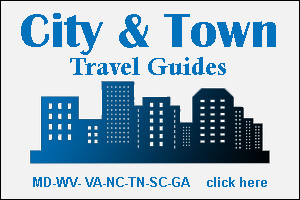Blue Ridge Parkway Rules and Regulations
Regulations and Advice
- To help protect and preserve the Blue Ridge Parkway, yourself, and others, observe all park regulations. Be alert for uncontrolled fire, safety hazards, accidents and emergencies. Please report such conditions by calling 1-800-PARKWATCH (1-800) 727-5928).
- Drive Carefully. The maximum speed limit is 45 miles per hour. Report any accident to a Park Ranger. Commercial vehicles are not permitted on the Parkway. Bicycles and motorized vehicles are not permitted on Parkway trails.
- Roadside Parking. Parking is limited to designated parking areas or road shoulders. All four wheels must be off the pavement.
- Trails. Bicycles and motorized vehicles are not permitted on Parkway trails.
- Camping. Camping is permitted only in park campgrounds or designated back-country sites.
- Pets. Dogs and other pets must be on a leash or under physical restraint at all times while in the Park. The territorial instinct of dogs can lead to fights with other dogs on the trail. Dogs also frighten hikers and chase wildlife. If a pet cannot be kept under control, it should be left at home.
- Do not swim in Parkway lakes and ponds. They are for fishing and scenic beauty only. Swimming facilities are available in nearby U.S. forest Services recreation areas, state parks, and mountain resorts.
- Prevent Forest Fires. Fires, including charcoal grills, are permitted in campgrounds and picnic areas only.
- Boats without motor or sail are permitted on Price Lake.
- Deposit all litter in the trash cans provided at trail heads, parking overlooks, and picnic areas.
- Metal detectors are prohibited.
- Natural resources are protected by Federal law. Do not disturb animal and plant life in any way. Hunting, trapping and carrying weapons and possession of any contraband substances are prohibited. Do not interfere with animals by feeding, touching, or frightening them. Do not cut, deface, or damage trees. Leave wildflowers and other vegetation in their natural condition for other hikers to enjoy.
- Historic resources are protected by Federal law. Do not damage, deface, or remove any of these structures, furnishings, or exhibits.
- Alcoholic Beverages are permitted in campgrounds by registered campers and in picnic areas until 9 pm.
- Possession of open containers of alcoholic beverages in motor vehicles is prohibited.
Important Advice
- Lock valuables in the trunk of your car or take them with you.
- Hiking shoes or boots are recommended for most trails, especially the more strenuous ones. Steep and rocky areas and slippery stream crossings require extra attention and careful footing. Even for trails marked “easy,” it is advisable to wear flat or rubber-soled shoes for comfort and good traction. Wearing scandals, “flip-flops,” or high heels can result in accidents.
- Sudden changes in weather are common in these mountains. Even in mild seasons, rapid dips in temperature and unexpected thunderstorms frequently occur, and at higher elevations the wind and temperature can carry a surprising chill. Be prepared for weather changes by bringing along suitable clothing.
- For your safety and the protection of the resources, stay on established trails. Shortcutting at switchbacks causes soil erosion, disfigures the trail, and makes it difficult for other hikers to find their way. Take advantage of log walkways, steps, or other trail construction. They are there to minimize human impact on the natural environment.
- Do not drink the water in streams or springs. Bacterial diseases can be contracted by drinking untreated “wild” waters.

